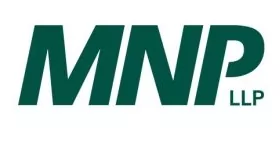I have previously written about farm owners moving away from a managerial and operational mind set to one of a strategic investor and entrepreneur.
The original idea came from an article by Tim Habbershon and Joseph Pistrui, Enterprising Families Domain: Family-Influenced Ownership Groups in Pursuit of Transgenerational Wealth, which hypothesized that wealth creation across generations required a shift in mind set from traditional family business thinking toward the "enterprising families domain."
The enterprising families domain could be defined as one that "favours growth and leads organizations to investigate opportunities when expansion is neither pressing nor particularly obvious."
Clearly, it can be difficult to apply this thinking to farm families where the farm is the primary legacy asset and may not be easily abandoned.
However, I think there is merit in applying some of this thinking to help farm families overcome the challenges of continuity planning.
Michael McGrann from Saint Joseph's University in Philadelphia, along with Habbershon and Pestrui, also developed the idea of six dimensions of enterprising families.
Many farm families may struggle to embrace the concepts of the enterprising families domain, but they could still benefit from applying these six dimensions to their own situations: leadership, relationship, performance, vision, strategy and governance.
- Leadership: Farm families often spend little or no time developing the next generation of leaders. Most rely on gender and birth order to decide who will manage the business in the future. This is a poor way to select a successor, especially if the current owners are relying on the farm's performance to fund their retirement. Developing leadership skills through internal and external coaching is critical, regardless of who is chosen.
- Relationship: Many farm families fail to develop good communication and decisionmaking processes, which can lead to long-term stress within the family. A family-owned business requires "relationship capital" if it is to progress. Relationship capital is the sum of all relationships of people within an organization. Those linkages have value, making the whole greater than the individuals. Good communication processes are needed to develop relationship capital.
- Performance: Is the farm business performing at the highest level? Can it tap into the competitive advantage that a strong family has to offer? This is a key component to any farm's future success.
- Vision: Does your family have a unifying vision of the future? This is often a strange concept for farm families to grasp, but it is a vital one that can hold the family and business together so that there is a combined understanding of the overarching goals to be achieved. A vision also helps create clarity.
- Strategy: Does the business know where it is going? Does it have a plan that is aligned with the longterm goals of its owners and the family? Many farms do not have a strategic plan, which inhibits much of its growth potential.
- Governance: Does the family and the business have the organizational structures in place to effectively function? This is often not a priority when the founding generation is still in control but becomes one as siblings or other family members enter the business or non-family members become involved. Good governance gives everyone a voice and offers transparency in the decision-making process. It may take time to develop and may require outside help to implement.
These concepts are not applicable to every farm. Many farm families will remain comfortable with traditional approaches to their business management and succession planning.
However, entering the "enterprising farm families domain" might work for those who seek an alternative option that embraces the concept of transgenerational wealth creation for the whole family.
The content of this article is intended to provide a general guide to the subject matter. Specialist advice should be sought about your specific circumstances.
We operate a free-to-view policy, asking only that you register in order to read all of our content. Please login or register to view the rest of this article.


